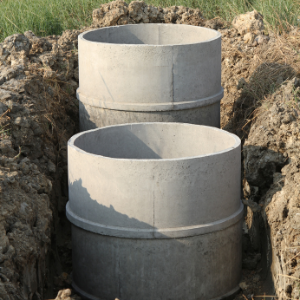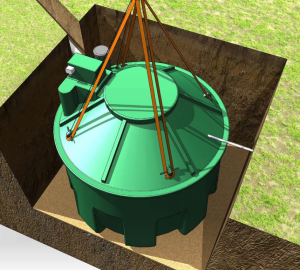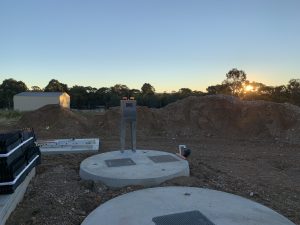Septic Tank Regulations in Sydney: What Homeowners Need to Know
As a homeowner in Sydney, NSW, understanding the regulations surrounding septic tanks is crucial to ensure compliance with local laws and environmental standards. Septic tank regulations aim to protect public health, safeguard water resources, and promote sustainable wastewater management practices. In this comprehensive guide, we’ll explore the essential regulations and requirements that Sydney homeowners should be aware of when owning and maintaining a septic tank on their property.
Council Approval and Permits
Before installing a septic tank, it is essential to obtain the necessary council approvals and permits. Local councils have specific regulations governing septic tank installations, and failure to comply may result in penalties or legal issues. Contact your local council or a licensed septic tank professional to ensure you have the correct permits before commencing any installation work.
Sizing and Design Guidelines
Septic tank sizing and design must comply with the guidelines set forth by the NSW government. The size of the septic tank is determined based on the property’s water usage, household size, and expected wastewater flow. Proper sizing ensures the septic system can effectively treat and handle the volume of wastewater generated on the property. Consulting with a licensed professional during the design phase helps ensure compliance with the required specifications.
Setback Distances
Septic tanks and drain fields must be installed at specific setback distances from buildings, water bodies, property boundaries, and other structures. These setback distances vary depending on the type of structure and local regulations. Ensuring proper setbacks is crucial to prevent potential contamination and to protect the health and safety of residents and the environment.
Maintenance and Inspections
Regular maintenance and inspections are mandatory for septic tank owners in Sydney. Homeowners must have their septic tanks inspected by a licensed professional at least once a year. These inspections help identify potential issues early on, ensuring the system’s efficient functioning and compliance with regulations. Additionally, proper maintenance, including regular pumping, is essential to prevent sludge buildup and avoid costly repairs.
Groundwater Protection
Septic tanks play a significant role in groundwater protection. They are designed to treat wastewater and prevent harmful contaminants from entering the soil and water sources. Homeowners must ensure their septic tanks are well-maintained and functioning correctly to minimize the risk of groundwater contamination. Failing to maintain a septic system adequately may result in environmental damage and legal consequences.

Repair and Upgrades
In the event of a septic system malfunction or failure, homeowners must promptly address the issue. Repair or upgrade work should always be carried out by licensed professionals to ensure compliance with regulations and proper functioning of the system. Neglecting repairs can lead to further damage and may result in violations of local laws.
Selling Your Property
If you plan to sell your property with a septic tank, it’s essential to provide potential buyers with all relevant information regarding the system. Keep records of inspections, pumping schedules, and any maintenance or repairs you’ve undertaken. This transparency instills confidence in buyers, as it assures them that the septic system is well-maintained and compliant with regulations. A well-documented and properly maintained septic tank can be a selling point for environmentally-conscious buyers and those seeking a reliable wastewater management solution.
Awareness of Changes in Regulations
Septic tank regulations may evolve over time to accommodate changing environmental standards and advances in wastewater treatment technology. As a responsible homeowner, it’s crucial to stay informed about any updates or changes to the regulations in your area. Periodically check with your local council or environmental department to ensure that your septic system remains in compliance with the most current guidelines.
Community Education
Apart from individual homeowners, community-wide education plays a vital role in promoting compliance with septic tank regulations. Community organizations, local authorities, and licensed professionals can collaborate to organize workshops and awareness campaigns to educate homeowners about proper septic tank maintenance and the importance of adherence to regulations. By fostering a culture of responsible wastewater management within the community, a cleaner and healthier environment can be achieved collectively.
Disposal of Harmful Substances
Septic tank owners must be mindful of what they dispose of into the system. Harmful substances, such as chemicals, grease, non-biodegradable items, and medications, should never be flushed or drained into the septic tank. These substances can disrupt the natural breakdown process and may lead to system failures or environmental harm.
Greywater and Rainwater Systems
Greywater recycling and rainwater harvesting systems are becoming popular for sustainable water use. If you plan to incorporate these systems, be aware of any regulations regarding their integration with your septic tank. Some local councils have specific guidelines on how these systems should be designed and managed to ensure their safety and effectiveness.
Upgrading or Replacing Septic Systems
If you plan to upgrade or replace your septic system, ensure that the new system complies with current regulations. Changes to regulations may have occurred since your original installation, and updating your septic system to meet the latest standards is essential for continued compliance.
To conclude, Understanding septic tank regulations is vital for Sydney homeowners to ensure the proper installation, maintenance, and compliance with local laws and environmental standards. Council approval, proper sizing, and design, as well as adherence to setback distances, are essential considerations when installing a septic tank. Regular inspections, maintenance, and proper disposal practices are mandatory to prevent environmental contamination and maintain the system’s efficient functioning. By being well-informed about septic tank regulations, homeowners can contribute to sustainable wastewater management, safeguard public health, and protect Sydney’s precious water resources for a cleaner and healthier environment. If you have any doubts or questions about septic tank regulations in your area, consult with a licensed septic tank professional or your local council to ensure you meet all necessary requirements and responsibilities as a septic tank owner.
For a Free Quote and Sizing on all septic tanks made in Australia call the team at Eco-Septic on 1800 808 135
Related Posts
- Do Domestic Sewage Treatment Plants Smell?
- The Cost of Maintaining Septic Tanks
- Reinventing the Septic Tank for the 21st Century
- Why aerated wastewater treatment servicing is important
- How is the Carbon Cycle Involved in Wastewater Treatment
- What happens to all the waste that’s pumped from septic tanks?
- What Is Commercial Wastewater?
- Why Is Wastewater Aerated?





